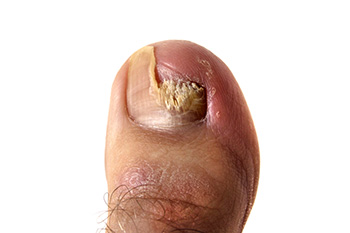Items filtered by date: September 2025
Exercises That Can Help With Plantar Fasciitis

Plantar fasciitis is one of the most common causes of heel pain. Exercises that focus on the foot and ankle can help reduce discomfort and promote healing. The plantar fascia is a band of tissue that supports the arch of the foot, and when it becomes inflamed, pain often develops along the heel and sole. Stretching exercises that lengthen the calf muscles and the bottom of the foot may reduce stress on the plantar fascia. Strengthening exercises improve support and stability during walking. Movements that target the toes, such as pulling them gently back toward the ankle, can decrease tension across the arch. Strengthening the small muscles within the foot can also improve balance and lessen the load on the fascia. A podiatrist can assess the severity of plantar fasciitis, recommend safe exercises, and develop a treatment plan that may also include other supportive options. If you experience pain from plantar fasciitis, it is suggested that you schedule an appointment with a podiatrist for treatment options, including exercises.
Exercising your feet regularly with the proper foot wear is a great way to prevent injuries and build strength. If you have any concerns about your feet, contact one of our podiatrists from James Kutchback, DPM, CWS-P. Our doctors can provide the care you need to keep you pain-free and on your feet.
Exercise for Your Feet
Exercise for your feet can help you gain strength, mobility and flexibility in your feet. They say that strengthening your feet can be just as rewarding as strengthening another part of the body. Your feet are very important, and we often forget about them in our daily tasks. But it is because of our feet that are we able to get going and do what we need to. For those of us fortunate enough to not have any foot problems, it is an important gesture to take care of them to ensure good health in the long run.
Some foot health exercises can include ankle pumps, tip-toeing, toe rises, lifting off the floor doing reps and sets, and flexing the toes. It is best to speak with Our doctors to determine an appropriate regimen for your needs. Everyone’s needs and bodies are different, and the activities required to maintain strength in the feet vary from individual to individual.
Once you get into a routine of doing regular exercise, you may notice a difference in your feet and how strong they may become.
If you have any questions, please feel free to contact our offices located in The Woodlands and Woodville, TX . We offer the newest diagnostic and treatment technologies for all your foot care needs.
Managing Toenail Fungus

Nail fungus, also known as onychomycosis, affects the toenails, causing them to become thick, discolored, brittle, and sometimes foul-smelling. It often begins as a white or yellow spot under the nail and can spread deeper, causing the nail to darken, crumble, or even separate from the nail bed. Causes include exposure to moist environments, walking barefoot in communal areas like around pools or in gyms, wearing tight shoes, having athlete’s foot, or a weakened immune system. People with diabetes or poor circulation are also at a higher risk. In some cases, the infection may cause discomfort or pain, especially when wearing shoes. A podiatrist can diagnose nail fungus by examining the nail, and possibly taking a sample to confirm the type of fungus. Treatment options include topical or oral antifungal medications, or, in severe cases, removal of the affected nail. If you have toenail fungus, it is suggested that you schedule an appointment with a podiatrist for effective treatment solutions.
For more information about treatment, contact one of our podiatrists of James Kutchback, DPM, CWS-P. Our doctors can provide the care you need to keep you pain-free and on your feet.
Toenail Fungus Treatment
Toenail fungus is a condition that affects many people and can be especially hard to get rid of. Fortunately, there are several methods to go about treating and avoiding it.
Antifungals & Deterrence
Oral antifungal medicine has been shown to be effective in many cases. It is important to consult with a podiatrist to determine the proper regiment for you, or potentially explore other options.
Applying foot powder on the feet and shoes helps keep the feet free of moisture and sweat.
Sandals or open toed shoes – Wearing these will allow air movement and help keep feet dry. They also expose your feet to light, which fungus cannot tolerate. Socks with moisture wicking material also help as well.
If you have any questions please contact our offices located in The Woodlands and Woodville, TX . We offer the newest diagnostic and treatment technologies for all your foot and ankle needs.
Dealing With Drop Foot

Drop foot, often called foot drop, is a condition where the foot cannot properly lift at the ankle, making it difficult to clear the ground while walking. This problem arises when the muscles at the front of the leg that control ankle motion become weak or lose function, or when the nerve supplying those muscles is damaged. People with drop foot may develop a high-stepping gait to avoid tripping, and without proper care, the ankle can stiffen into a downward pointing position. A podiatrist can evaluate the severity and underlying cause, and provide treatment to help restore mobility and function. Options include the use of an ankle-foot brace to keep the foot in a neutral position or surgery, such as tendon transfer or nerve repair, if the weakness is permanent. These treatments are designed to improve stability, walking ability, and reduce the risk of falls. If you have trouble lifting your feet when walking, it is suggested that you make an appointment with a podiatrist for treatment options.
If you have any concerns about your feet, contact one of our podiatrists from James Kutchback, DPM, CWS-P. Our doctors can provide the care you need to keep you pain-free and on your feet.
Biomechanics in Podiatry
Podiatric biomechanics is a particular sector of specialty podiatry with licensed practitioners who are trained to diagnose and treat conditions affecting the foot, ankle and lower leg. Biomechanics deals with the forces that act against the body, causing an interference with the biological structures. It focuses on the movement of the ankle, the foot and the forces that interact with them.
A History of Biomechanics
- Biomechanics dates back to the BC era in Egypt where evidence of professional foot care has been recorded.
- In 1974, biomechanics gained a higher profile from the studies of Merton Root, who claimed that by changing or controlling the forces between the ankle and the foot, corrections or conditions could be implemented to gain strength and coordination in the area.
Modern technological improvements are based on past theories and therapeutic processes that provide a better understanding of podiatric concepts for biomechanics. Computers can provide accurate information about the forces and patterns of the feet and lower legs.
Understanding biomechanics of the feet can help improve and eliminate pain, stopping further stress to the foot.
If you have any questions please feel free to contact our offices located in The Woodlands and Woodville, TX . We offer the newest diagnostic and treatment technologies for all your foot and ankle needs.




